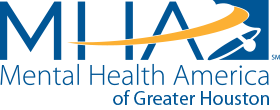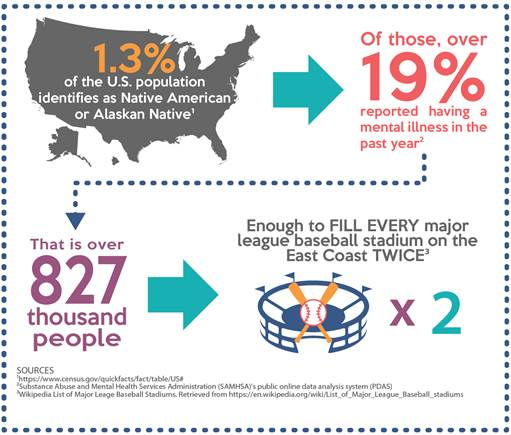Monday, October 12th is National Indigenous People’s Day. Visit these websites to learn who’s land you are on and consider developing a land acknowledgment for presentations, meetings, and other settings.
Native/Indigenous people face unique mental health challenges that are rooted in historical trauma and continued oppression such as colonialization, boarding school systems, and limited access /incompatible mental health services. Here are some facts:
- Native/Indigenous people in America report experiencing serious psychological distress 2.5 times more than the general population over a month’s time.
- The concept of mental illness and beliefs about why and how it develops have many different meanings and interpretations among Native/Indigenous people. Physical complaints and psychological concerns are not distinguished, and Native/Indigenous people may express emotional distress in ways that are not consistent with standard diagnostic categories.
- Access to mental health services is severely limited by the rural, isolated location of many Native/Indigenous communities. Additionally, access is limited because most clinics and hospitals of the Indian Health Service are located on reservations, yet the majority of Native/Indigenous people in America live outside of tribal areas.
For more facts, information, and resources, you can see the links below.
Resources (not an exhaustive list):
- Overview of Native & Indigenous Communities Mental Health
- Indigenous Story Studio
- One Sky Center
- WeRNative
- Indian Health Services (US Dept. of Health & Human Svcs.)
- Two Spirit & LGBTQ Health
- National Center for American Indian & Alaska Native Mental Health Research
- Rest for Resistance


